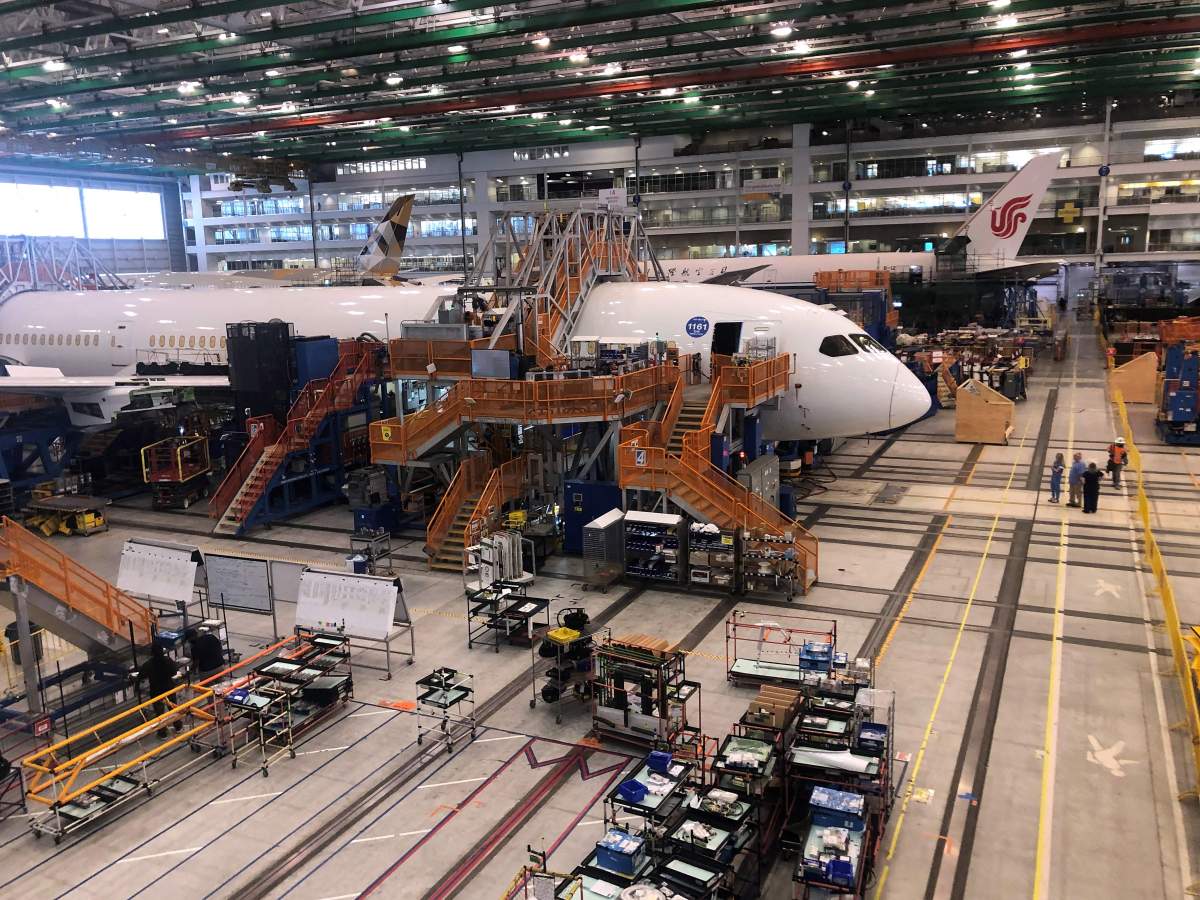John Barnett, who worked for Boeing for more than three decades before blowing the whistle on the aircraft maker’s allegedly questionable safety standards, was found dead in his car in South Carolina.

Barnett, 62, was supposed to be in a deposition Saturday to answer questions related to a lawsuit against his former employer when he failed to show up to the meeting. His legal team tried to reach him by phone to no avail, until they contacted the hotel where Barnett was staying.
He was found dead in his truck in the hotel parking lot.
The Charleston County Coroner’s Office told local media that it appears Barnett died from a self-inflicted wound. The Charleston Police Department is investigating his death.
Barnett, originally from Louisiana, was in Charleston for legal interviews related to his case against Boeing, in which he argued that his former employer retaliated against him for raising concerns about the safety of the airplanes produced at its Charleston manufacturing plant.

“Today is a tragic day,” Brian Knowles, Barnett’s lawyer, wrote in an email to Corporate Crime Reporter. “John had been back and forth for quite some time getting prepared. The defense examined him for their allowed seven hours under the rules on Thursday. I cross examined him all day yesterday (Friday) and did not finish. We agreed to continue this morning (Saturday) at 10 a.m., (co-counsel) Rob (Turkewitz) kept calling this morning and (Barnett’s) phone would go to voicemail. We then asked the hotel to check on him. They found him in his truck dead from an ‘alleged’ self-inflicted gunshot.”

Get breaking National news
Boeing stated that the company is “saddened by Mr. Barnett’s passing, and our thoughts are with his family and friends.”
Barnett worked at Boeing for 32 years as a quality control engineer before retiring in 2017.
In 2019, along with a dozen other workers, Barnett told the New York Times that, facing manufacturing delays, Boeing pushed its workforce at the Charleston plant to churn out Dreamliners and ignore safety issues.
Barnett said at the time that he had discovered clusters of metal shavings hanging over wiring that commanded the flight controls in several planes. The metal shavings were apparently produced when fasteners were fitted into nuts, but if the shavings pierced the wires, the results would be “catastrophic.”
Barnett said he repeatedly urged his bosses to remove the shavings but they refused and moved Barnett to a different part of the Charleston plant.
A spokesperson for the Federal Aviation Administration (FAA) confirmed to the New York Times that it had inspected several Boeing planes and found the metal shavings, which can lead to electrical shorts and cause fires. The FAA issued a directive to have the shavings cleaned up and Boeing said at the time it was complying with the order and working to improve the design of the nut that produced the metal slivers.
Later in 2019, Barnett raised another safety concern, this time with the BBC. He said that procedures to track defective parts had failed, resulting in some sub-standard parts being fitted to planes to speed up manufacturing time.
He claimed that tests of the emergency oxygen systems on some planes had shown a failure rate of around 25 per cent, meaning that one in four oxygen masks deployed in the event of an emergency could fail.
Boeing denied the claims but the FAA found that at least 53 defective parts in the factory had gone missing and were considered lost. Boeing was ordered to take remedial actions following the report.
Barnett launched his own lawsuit against Boeing, accusing the company of defaming his character and hindering his career because of the safety issues he raised. This was the lawsuit Barnett was pursuing when he died.

In recent months, Boeing has consistently been in the headlines after a series of high-profile accidents.
In January, a door plug failed on a Boeing 737 Max 9 plane, resulting in a door panel blowing off the fuselage mid-flight. The blowout was linked to loose bolts and the FAA grounded all Boeing 737 Max 9 planes with a door plug shortly after the incident.
On Monday, 50 people were injured onboard a Boeing 787 plane after a “strong shake” and sudden plunge caused people to be thrown from their seats and hit the plane’s ceiling during a flight from Australia.
The cause of the “technical event” is still under investigation.








Comments
Want to discuss? Please read our Commenting Policy first.